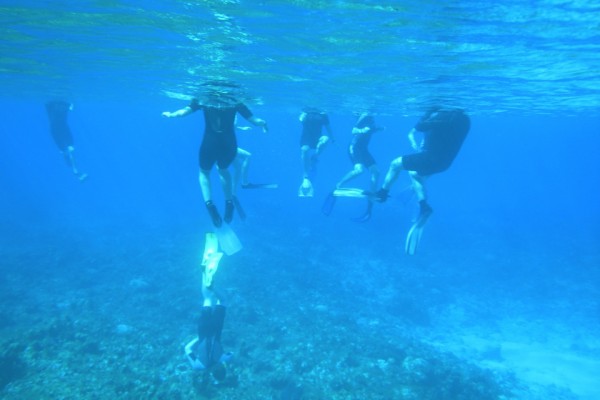Eight courses heading off campus
Dozens of students in eight different courses will spend Block 6 off campus, going as far afield as the Bahamas, Belize, Rome, and New Zealand. Some of the courses, which run Feb. 2 through Feb. 25, are going to the same locations, and will meet during the block to discuss the different perspectives they’ve gained. One of the advantages of Cornell College’s One Course At A Time curriculum is the ability to go off-campus whenever it’s appropriate for a course. Courses can go off campus for part or all of any of the eight blocks in a year without concerns about the schedules of other classes. Students in the courses will have the chance to see climate change in action, experience Carnaval celebrations in Martinique, and continue Cornell’s tradition of faculty-student research.
Five of the courses are going to the Caribbean and Central America—three to Belize, one to the Bahamas, and one to Martinique. Two of the courses, West Indian People and Culture (anthropology) and Comparative Education in Belize (education) are planning to meet on San Pedro after the first week of classes and discuss their experiences. Alfrieta Monagan, who’s teaching West Indian People and Culture, said; “The goal of our meeting in San Pedro is for students to be exposed to the culture from the perspective of two different disciplines and for them to also learn from one another.”
The other course in Belize during Block 6, Biological Problems (biology), is one of Cornell’s longest-standing off-campus courses, meeting annually in either the Bahamas of Belize for 15 years. Some students will continue work on Craig Tepper’s long-running research into the way coral reefs cope with environmental disturbances. Others will conduct research with Barbara Christie-Pope into the toxin contained in the stinging cells of fire coral, whose painful sting gives the organism its name.

In the Bahamas, students in Ben Greenstein’s Modern and Ancient Carbonate Systems (geology) course will literally immerse themselves in marine geology, spending time each day in the water observing a variety of coral reefs, lagoons, tidal flats and water-filled caves. They’ll also discuss how how their observations relate to current concerns about climate change and the marine environment. “The course integrates several liberal arts disciplines in addition to geology,” Greenstein said. “These include history, biology, and sociology”
Students in Devan Baty’s Francophone Cultural Immersion (French) course will spend the block immersed in the culture of Martinique. In addition to classroom time, they will stay with families, and because of the timing of the course, will experience first-hand the celebration of Carnaval. “Students will learn from Martinicans themselves how language, landscape, and identity are interrelated in Creole culture,” Baty said.
Geology Professor Rhawn Denniston is leading The Geology of New Zealand, where students will have the opportunity to put the principles they’ve already learned in action on New Zealand’s south island. While geologists usually student ancient climate change, Denniston’s students will have a different opportunity, as well. Part of their work will take place around the Franz Josef glacier. “In the last five years it has retreated an enormous amount,” Denniston said. “As someone interested in climate change but who normally studies variations that occurred over past millennia, this is a remarkable chance to see climate change in action.”
One course is headed to Europe, Rome Reborn: Caput Mundi in Ancient, Renaissance, and Modern Contexts (art history). Art history Professor Christina Penn-Goetsch’s course will look at the evolution of Rome and the different ways art and urban planning have affected the landscape of the ancient city.
The final course heading off campus is staying at Cornell’s home away from home, the McLennan Center in Chicago. Religion Professor Steven Sacks’ course, Seminar in Perspectives on Religion, will take advantage of the center’s classroom and living space while allowing students to conduct individual research on religion.



